Pickleball’s soaring popularity has brought players of all ages to the court, eager to enjoy this fun mix of tennis, badminton, and ping-pong. But as casual games turn competitive, understanding the finer points of the rules, especially regarding interference and distraction, becomes crucial. These rules ensure fair play and prevent disputes, keeping the game enjoyable for everyone.
Interference and distraction in pickleball can be a bit of a gray area, leading to confusion among players. Whether it’s a ball from another court rolling in or a player’s unintentional shout, knowing how to handle these situations can make a big difference. Let’s dive into the specifics of these rules, shedding light on how they’re applied during play and how they affect the game’s flow.
Understanding Interference and Distraction in Pickleball
Pickleball has surged in popularity, transforming from casual backyard fun to competitive tournaments. With this shift, a clear understanding of the rules, particularly those around interference and distraction, becomes paramount. These elements, often overlooked by beginners, play a crucial role in ensuring fair play and enjoyment for everyone on the court.
Interference in pickleball typically involves any external factor that impacts the flow of the game. This could range from a ball from another court rolling into the playing area, to spectators walking too close to the court. Such interruptions can cause players to lose concentration or even miss a crucial shot. Recognizing and handling these instances correctly maintains the integrity of the game.
Distraction, on the other hand, deals more with intentional or unintentional actions by players that could disrupt their opponents’ concentration or gameplay. This includes, but isn’t limited to, making loud noises, sudden movements outside the field of play, or even excessive celebrating. While some level of distraction might be seen as a natural part of any competitive sport, pickleball places a strong emphasis on sportsmanship and respect among players.
To combat these issues, the game relies on a set of well-defined rules:
- When a ball from another court enters the playing area, play should be stopped and the point replayed. This ensures that no team gains an unfair advantage due to an external interruption.
- In cases of distraction, it’s important that players maintain a level of decorum. The rules allow for a certain degree of judgment from the referee (if present) or between players (in casual games) to decide if an action was significantly distracting to warrant halting play or replaying a point.
Here are some additional points to consider:
- Communication is key. Always alert others if you see potential interference.
- Respect between players helps mitigate unintentional distractions.
- In official games, always defer to the referee’s judgment on interference and distraction calls.
Understanding these nuances not only enhances gameplay but also fosters a more respectful and enjoyable environment for everyone involved. As players become more familiar with handling these situations, the game continues to grow in a positive and competitive direction. With every serve and return, remembering these guidelines ensures that pickleball remains an engaging and fair sport for players of all levels.
Importance of Interference and Distraction Rules
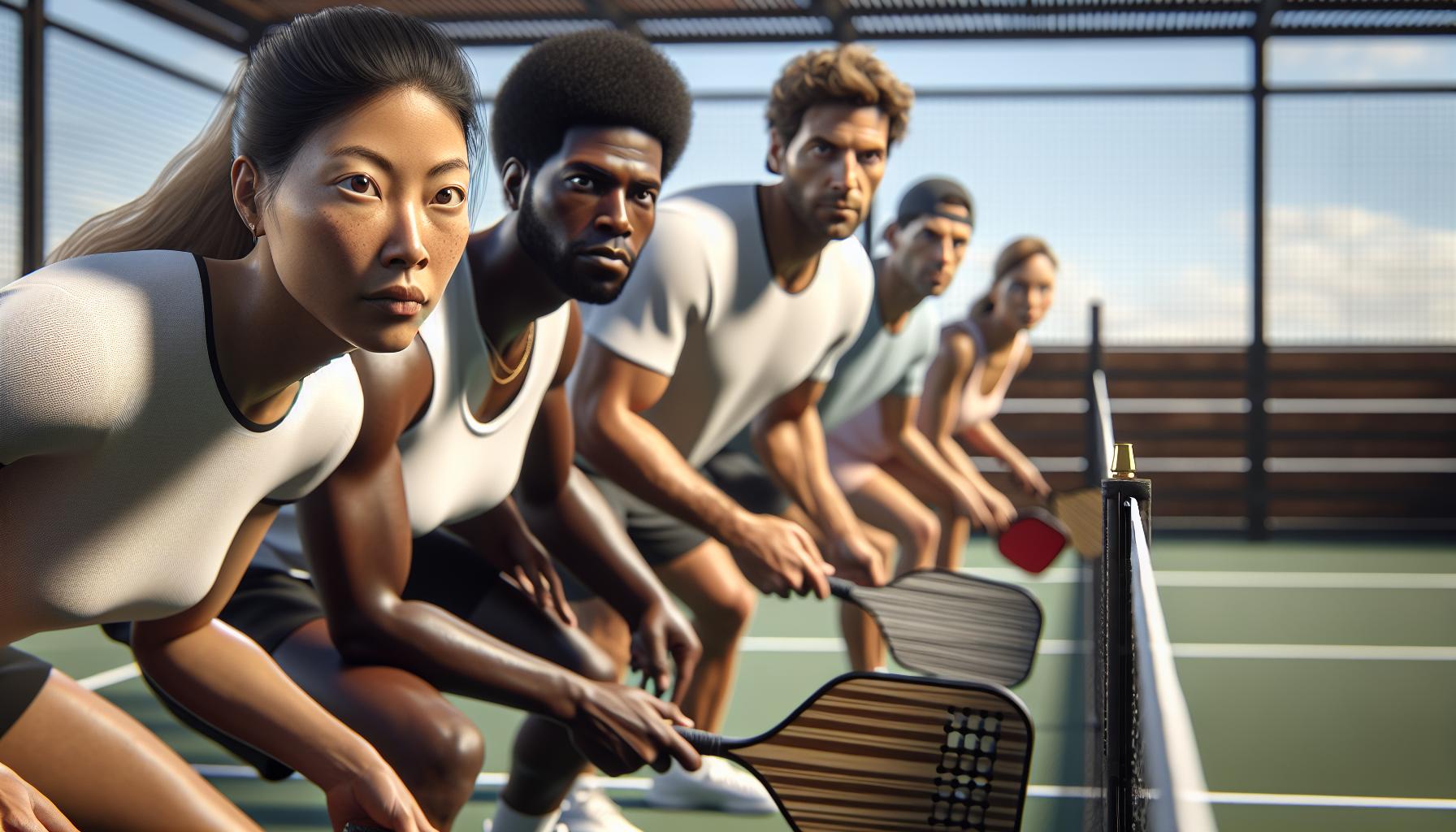
In the world of pickleball, maintaining a level playing field is paramount. This is where the importance of interference and distraction rules comes into play. These rules aren’t just arbitrary guidelines; they serve a crucial function in ensuring fair play and sportsmanship across all levels of competition.
Interference rules help manage external factors that could affect gameplay. For example, objects or people entering the court unexpectedly can lead to disruptions. By having clear rules in place, players know how to react in these situations, often resulting in a pause or replay of the point. This ensures that no team gains an unfair advantage due to unforeseeable external interactions.
Distraction rules, on the other hand, address the behavior of players during a match. Actions that are considered distracting or deliberately aimed to disrupt an opponent’s concentration are taken seriously. These can range from unnecessary noise to inappropriate movements or gestures during play. By setting boundaries on such behaviors, the rules promote respect and civility among competitors.
Fair play is at the core of pickleball, and these rules are essential in upholding this principle. They also facilitate smoother gameplay, minimizing conflicts and misunderstandings among players. With a clear framework to guide behavior and responses to disruptions, players can focus more on skill and strategy, rather than disputes over fairness.
Communication between players and referees is key to effectively managing interference and distractions. In many cases, incidents are resolved through simple acknowledgement and mutual understanding. When disputes arise, however, the referee’s judgment becomes the final word. Their decisions are based on a combination of rule interpretations and the spirit of sportsmanship, aiming to ensure that fairness prevails.
It’s important for players to familiarize themselves with these rules. Knowledge and understanding of what constitutes interference or a distraction can prevent inadvertent violations. Moreover, this awareness fosters an environment where sportsmanship takes precedence, enhancing the experience for everyone involved.
Ultimately, the interference and distraction rules in pickleball reflect the sport’s values. They underscore the importance of respect, fairness, and sportsmanship, extending beyond the court. Whether it’s a friendly game at the local park or a competitive tournament, these rules play a vital role in preserving the integrity and enjoyment of pickleball.
Types of Interference and Distraction
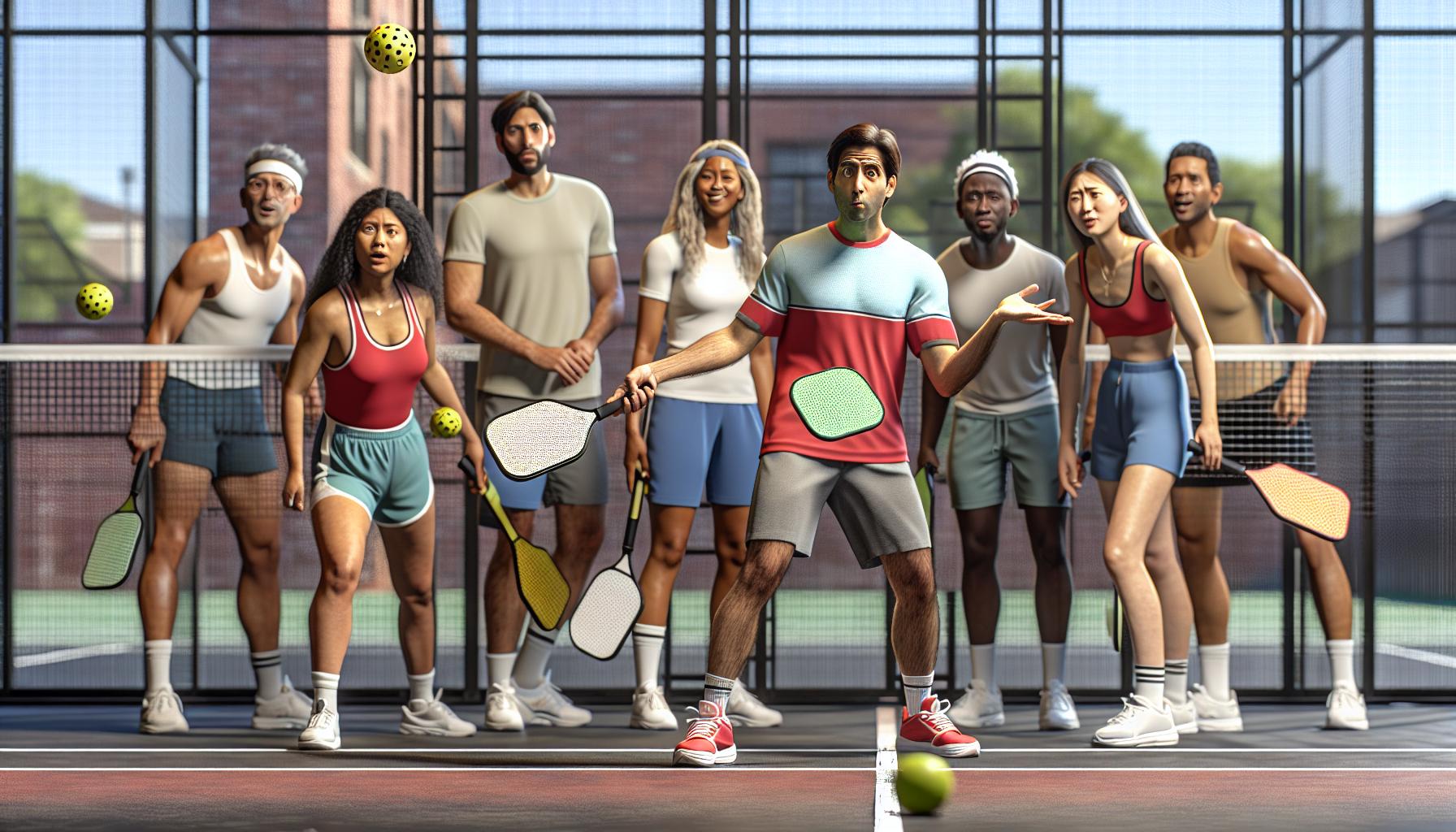
Pickleball, a game that meshes elements of tennis, badminton, and ping-pong, requires not just skill and strategy but also a sincere commitment to the etiquette of the game. Central to maintaining the spirit and fairness of pickleball are the rules governing interference and distraction. These regulations are designed to ensure that all players have an equal opportunity to compete without external or intentional disruptions. But what exactly constitutes interference and distraction in pickleball? Let’s delve into the specifics.
Interference in pickleball primarily revolves around any external factors that disrupt play. These can range from objects entering the court to environmental elements such as wind or sun glare. However, not all interferences are tangible; some include instances where players accidentally step into their opponent’s court or when a ball from an adjacent game rolls onto the playing field.
Here are a few types of interference commonly recognized in pickleball:
- External objects: Balls from other courts, lost items from spectators, or any foreign objects entering the playing area.
- Environmental conditions: Strong winds, sun glare, or sudden changes in weather that affect play.
- Player invasion: Accidental encroachment by players into the opponents’ side of the court.
- Equipment malfunction: Situations where a player’s equipment (racket, clothing, etc.) interferes with the game.
On the other hand, distractions are primarily concerned with player behavior that is deemed to intentionally disrupt the concentration or performance of opponents. These actions break the foundational principle of sportsmanship and can significantly impact the outcome of a match.
Examples of distractions include:
- Verbal noise: Loud or sudden shouts, unnecessary calls, or talking aimed to distract an opponent.
- Gestures: Any physical actions intended to catch an opponent’s eye and divert their focus from the game.
- Deliberate stalling: Actions taken to intentionally delay the game, disrupting the rhythm and flow of play.
- Unsportsmanlike conduct: Any behavior that fails to adhere to the principles of fairness, respect, and integrity.
How to Handle Interference and Distraction Situations
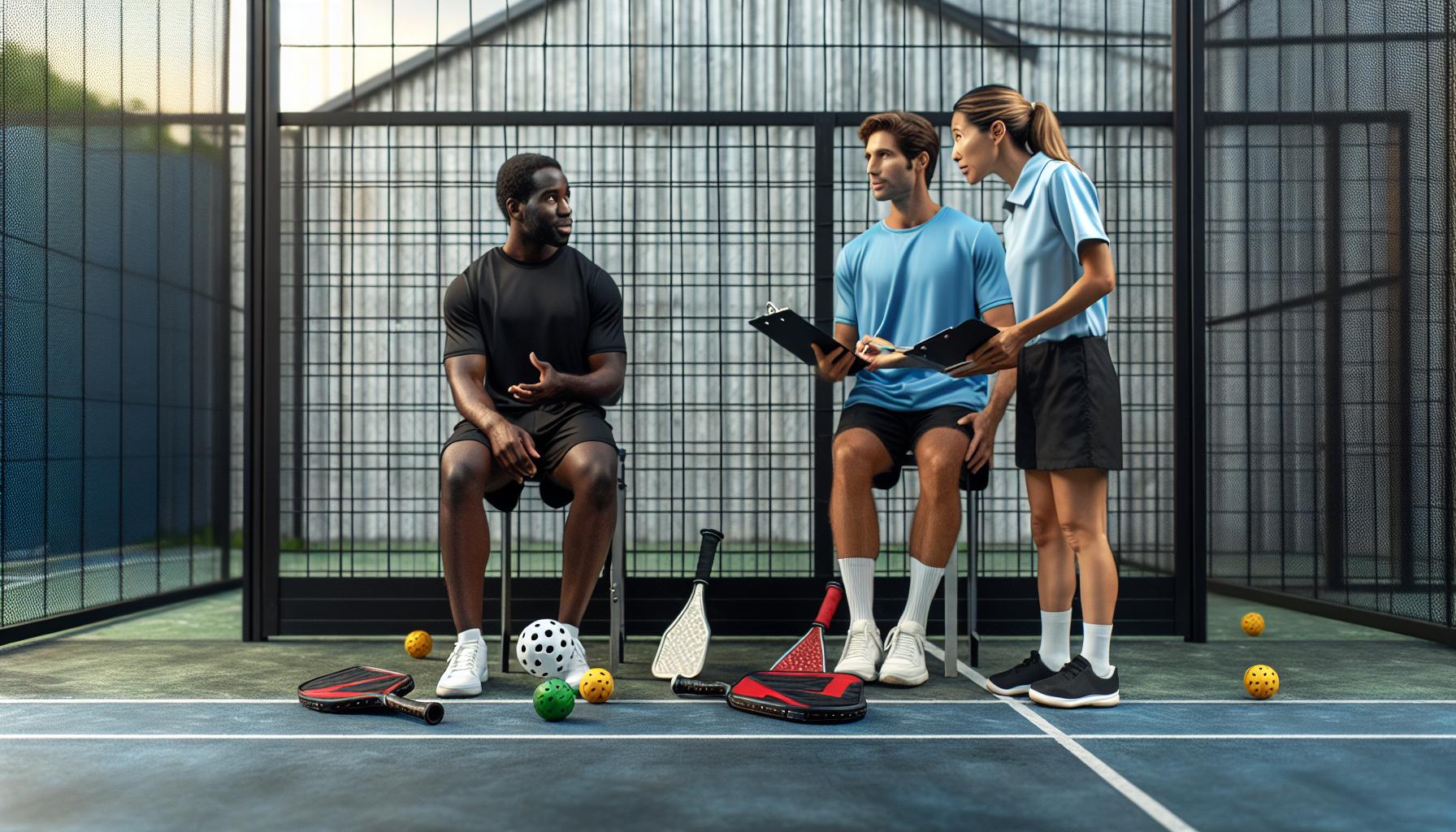
When interference or distraction occurs in pickleball, it’s vital for players to know how to handle these situations effectively to maintain the game’s integrity and sportsmanship. Recognizing and mitigating these incidents promptly ensures a fair and enjoyable experience for everyone involved.
Recognizing Interference or Distraction
The first step in handling these situations is to recognize what constitutes interference and distraction. While interference often involves physical or environmental elements affecting play, distractions are typically the result of players’ behavior. It’s important to differentiate between accidental occurrences and deliberate attempts to disrupt the game.
Immediate Actions
Upon encountering interference or distraction, players should:
- Stop play immediately if safety is a concern or if the interference significantly impacts the game.
- Politely point out the issue to the opposing player or team if it’s a case of distraction due to behavior. Often, opponents may not be aware that their actions are causing a problem.
- Seek a referee’s decision in competitive play if there is disagreement on how to proceed after an interference or distraction. Referees are trained to handle such situations impartially.
Resolving Disputes
Disputes over interference or distractions can sometimes escalate, affecting the game’s atmosphere. To resolve these efficiently:
- Discuss the situation calmly and clearly, focusing on facts rather than personal feelings.
- If playing without a referee, come to a mutual agreement on how to replay or continue the game. This might involve replaying the point or, in some circumstances, adjusting the score.
- Agree to abide by predetermined rules regarding interference and distractions, as outlined by the USAPA (USA Pickleball Association) or local club guidelines.
Preventive Measures
Players and clubs can take several preventive measures to reduce the likelihood of interference and distractions:
- Regularly inspect and maintain the court to ensure it’s free of objects or conditions that might lead to interference.
- Establish clear ground rules around acceptable behavior and noise levels during play, especially in competitive settings.
- Encourage players to maintain sportsmanship and respect for opponents and the game at all times.
Tips for Maintaining Fair Play
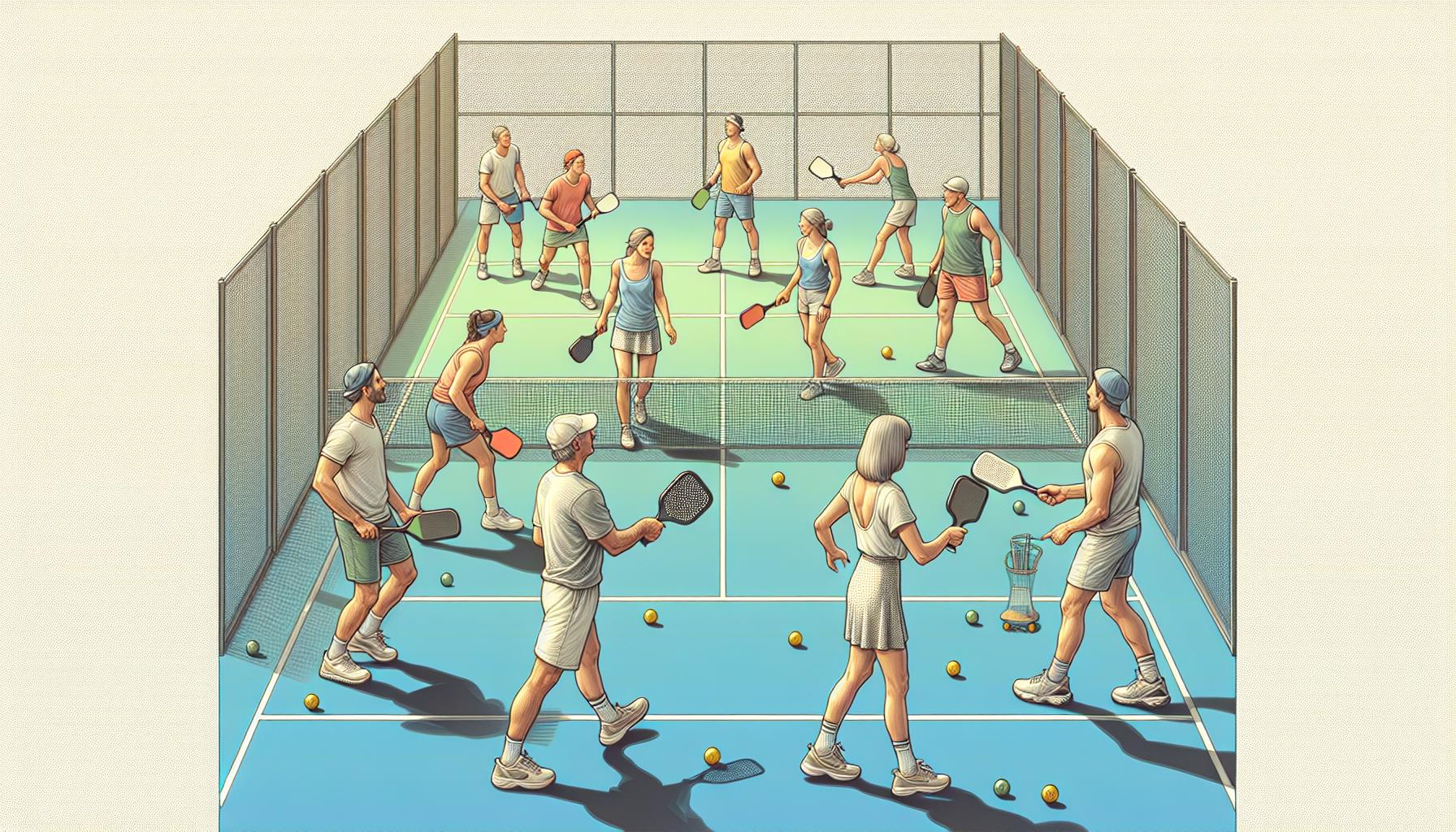
Maintaining fair play in pickleball isn’t just about adhering to the rules; it’s about fostering an environment where sportsmanship prevails and every player can enjoy the game to its fullest. Here are some useful strategies players can employ to minimize interference and distractions, thus ensuring fair play.
Communicate Clearly and Respectfully
Clear and respectful communication is the cornerstone of maintaining fair play. It’s important for players to:
- Express concerns about potential interferences or distractions before the game starts.
- Address any issues as they arise during the game, but always in a respectful manner.
- Encourage teammates and opponents alike to maintain open lines of communication throughout the game.
Stay Aware of Your Surroundings
Being aware of the game environment plays a significant role in minimizing unnecessary interruptions. Players should:
- Regularly check the condition of the court and remove any hazards that could cause interference.
- Be mindful of their own actions and movements to avoid accidentally causing distractions for other players.
- Keep personal belongings and equipment away from the court to reduce clutter and potential hazards.
Practice Self-discipline
Self-discipline is crucial for every player desiring to contribute to a fair and enjoyable game. This includes:
- Avoiding behaviors that could be seen as distracting or disruptive to other players.
- Maintaining focus on the game and resisting the urge to react negatively to opponents’ play or umpire decisions.
- Ensuring that all comments and gestures during play are positive and supportive.
Know and Follow the Rules
A deep understanding of the game’s rules is essential for all players. This not only helps in playing the game correctly but also in understanding and addressing any issues of interference or distraction that might arise. Important aspects include:
- Being familiar with the rules related to serving, point scoring, and ball in/out calls.
- Understanding the specific regulations regarding timeouts, equipment malfunctions, and player substitutions.
- Acknowledging the role of referees in competitive play and respecting their decisions.
Focus on Sportsmanship
Above all, a spirit of sportsmanship should be the guiding principle for every player. This means:
- Always treating opponents, teammates, and officials with respect, regardless of the game’s outcome.
- Accepting responsibility for one’s actions during the game, including any accidental interference or distraction caused.
- Celebrating good plays and showing grace in victory as well as dignity in defeat.
Conclusion
Navigating the rules of interference and distraction in pickleball isn’t just about keeping the game fair; it’s about elevating the experience for everyone involved. By adopting strategies that prioritize sportsmanship, players contribute to a respectful and enjoyable atmosphere. Remember, the heart of pickleball lies not only in the thrill of the game but also in the spirit of community it fosters. Let’s keep the courts a place where good plays are celebrated, and every match ends with players looking forward to the next game together.

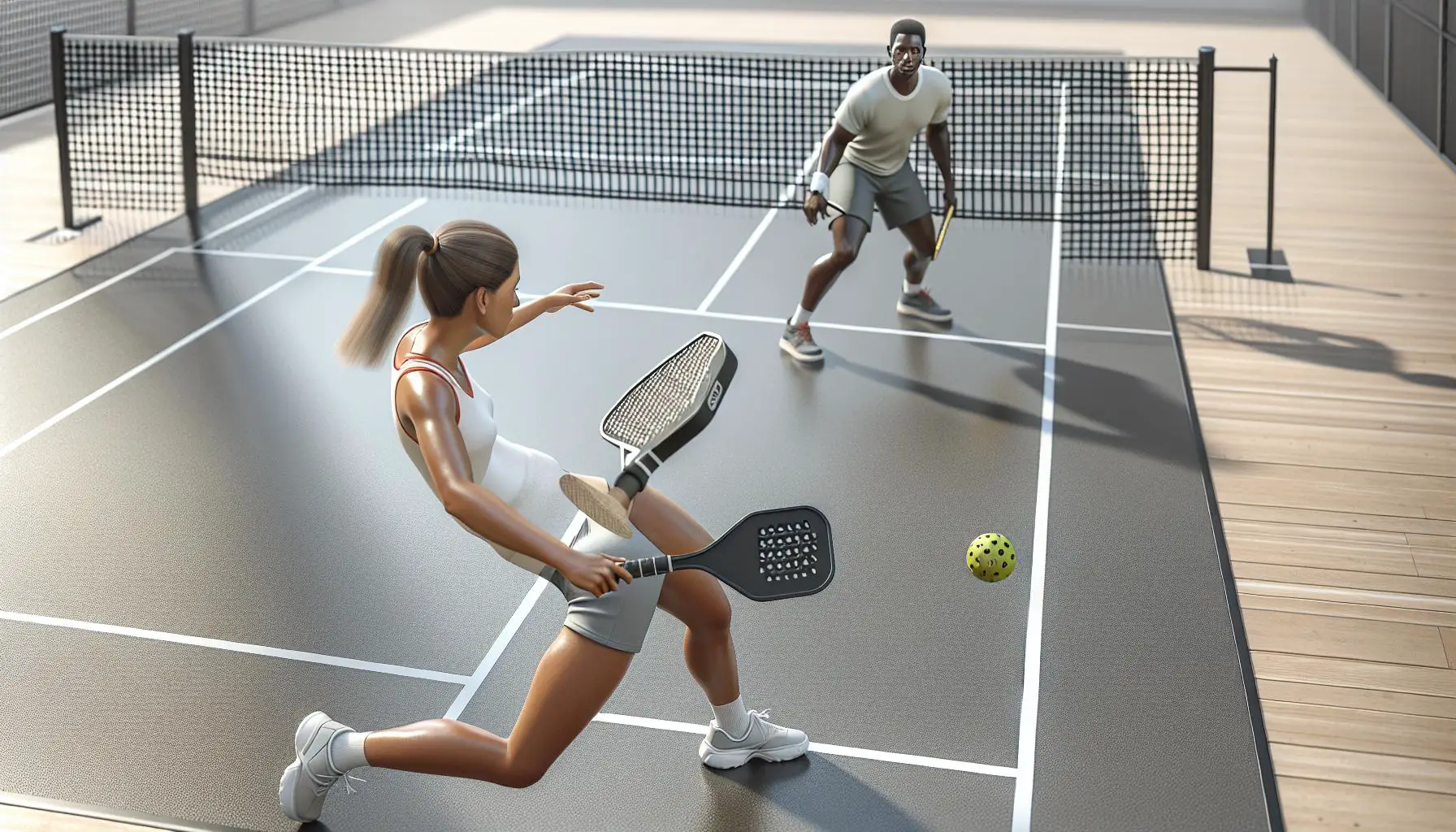




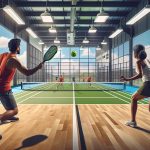

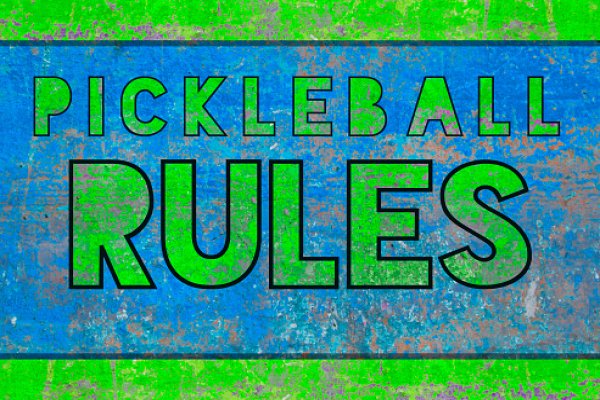
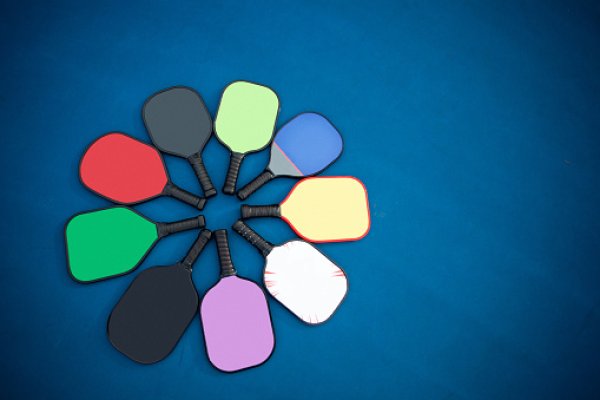
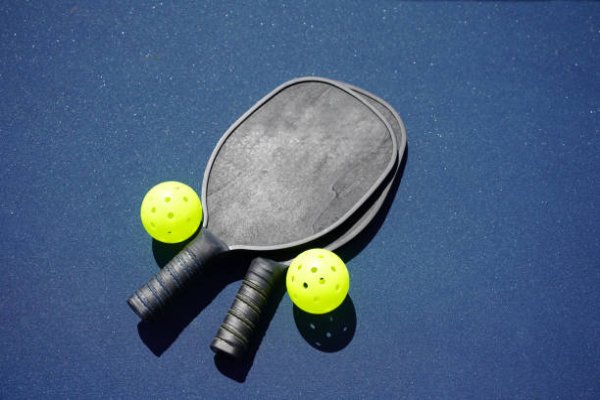
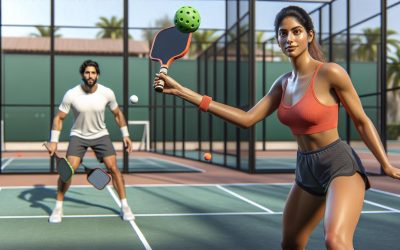


0 Comments